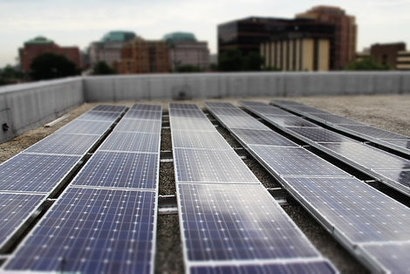
Business rates of up to 800 percent on organisations using their own rooftop solar will seriously impact 44,000 solar microgenerators who are currently exempt from business rates. The tax rate hike comes at a time when rooftop solar deployment is at a six year low. The STA has been pressing Government for nine months to drop the unfair rate hike, which does not reflect the increased rental value of properties.
“We are dismayed that responsible organisations that use their own rooftop solar are still facing an extreme business rate rise of up to 800 percent from April” said STA CEO Paul Barwell. “Some fossil fuel technologies are already exempt from business rates, and today the Chancellor again took special care of oil and gas. It is surprising that the Treasury’s tax policies tend to yesterday’s technologies while putting clean, modern solar at a competitive disadvantage. The Chancellor says he wants the UK at the “cutting edge of the global economy”- his tax policies for energy risk the opposite.”
Mr Barwell added that Government cherry picking of more expensive technologies while shutting solar out of competitive auctions, even as its industrial strategy prioritises cheap power, mean that business and consumers pay over the odds for decarbonisation, and competitive pressure is weak.
Suppressing solar in the UK is no way to ‘prepare for a global future’. It already dominates clean energy investment globally and it is expected to expand dramatically. Solar is also set to be the cheapest source of power in the world so countries that embrace solar will have a competitive advantage.
The STA said it will continue to oppose the business rate rise and will now look to Parliament to support corrective action.
There was further disappointment that the long term price signals investors need through the Carbon Floor Price has been deferred to Autumn. Moreover, there was nothing in the Treasury announcement on replacing the LCF that gives desperately needed clarity to solar power which has been shut out from competitive access to wholesale markets. The UK’s cheapest and most popular source of clean energy – solar - has been shut out of auctioning, meaning consumers pay more for decarbonisation and the immense competitive pressure that solar has provided has been removed from other technologies.
For additional information:

